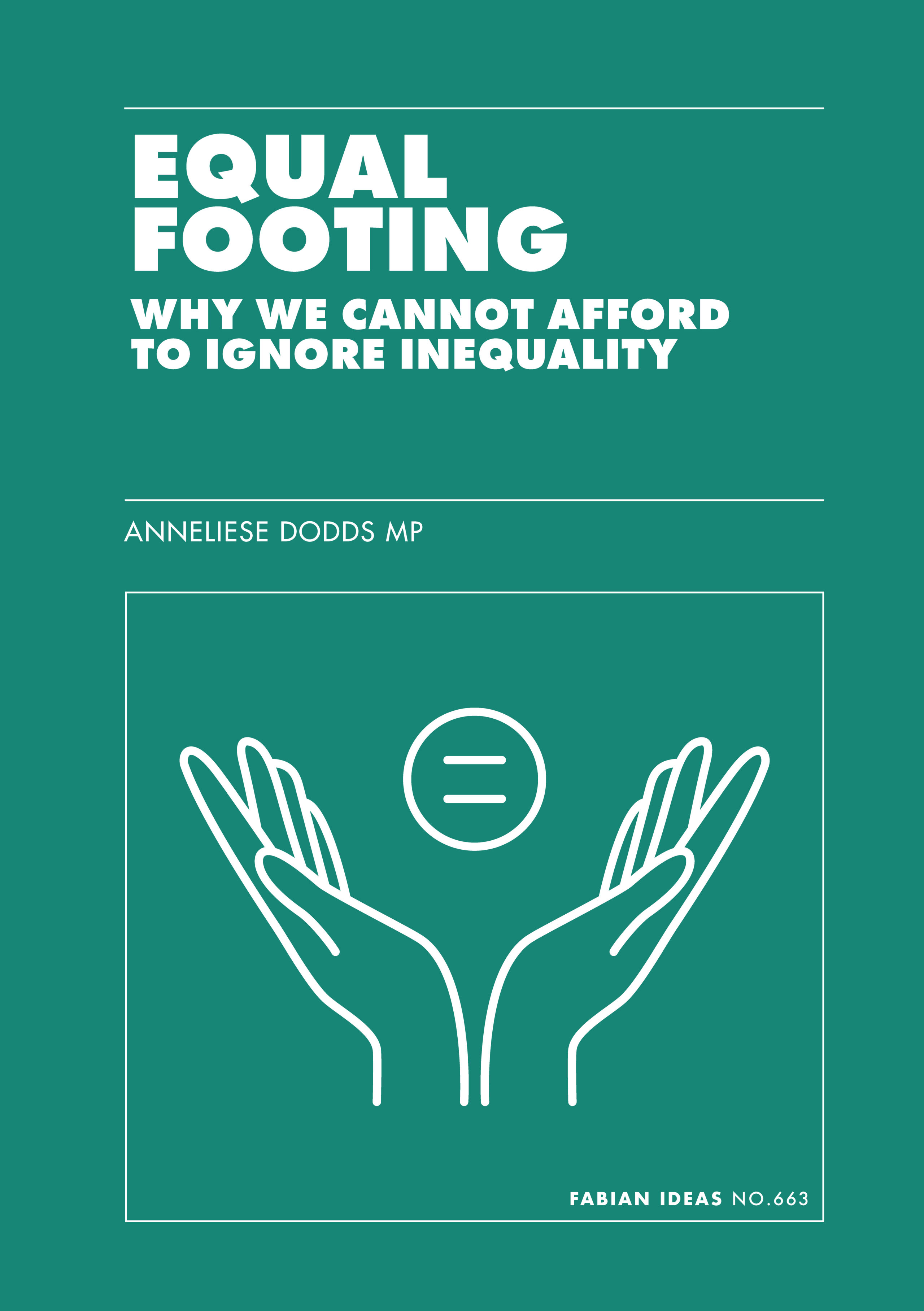Equality is Fundamental to Growth and Has Gone Backwards Under the Tories
Britain has gone backwards on multiple measures of equality says Anneliese Dodds MP, Labour’s shadow women and equalities Cabinet minister.
In a Fabian Society pamphlet Equal footing – Why we cannot afford to ignore inequality Dodds argues that increased equality is fundamental for growth and will be at the heart of Labour’s ambition for the UK to be the fastest growing economy in the G7.
The Shadow Secretary of State for Women and Equalities says equalities outcomes have gone backwards during recent years as a result of government turbulence, a lack of political will and a preference for divisive rhetoric over evidence-based policy making.
Dodds shows how far the UK still has to go on equality, pointing to statistics including:
- Black women are four times more likely to die in childbirth than white women
- Black children are three time more likely to die in infancy
- The gender pay gap has increased for the second year in a row
- Life expectancy is going backwards among some communities in our country for the first time in decades
Dodds argues that Labour is offering an alternative approach to equalities which will be essential to achieving the kind of economic growth that an ambitious Labour government would want.
She points to OECD research showing that rich countries lost around 15 per cent of their potential GPD due to the underemployment of women.
In the UK women aged between 50 and 65 have been leaving the workplace in the last few years reversing previous trends. If this were corrected and these 185,000 women were to return to the workplace, this would bring an additional £7bn of economic output. Meanwhile closing the gap for Black, Asian and minority ethnic people would add an additional £36bn to the economy.
Dodds argues that government has many of the tools in place to vastly reduce inequalities but it has lacked the political will to do so.
In government, Labour will have a Shadow Secretary of State for Women and Equalities (not just a minister as is the present arrangement) and will restore the cross-government function of the Government Equalities Office. This would enable long-term and cross-departmental work on equalities to enable all Britons to thrive and boost economic growth.
She says Labour will also introduce a Race Equality Act which will bring in ethnicity pay gap reporting and other measures to tackle structural racial inequality, ensuring workplaces are fit for the future. Labour will also ensure passporting of Access to Work measures to reduce significant barriers in the job market for disabled people.
Labour will bring in a ‘whole government’ approach to tackling domestic violence which is estimated to cost the UK £66bn. This approach would include the introduction of specialist rape courts, domestic abuse specialists in every 999 control room, and a variety of other targeted measures.
The rewards of increased equality, Dodds argues, are not just felt by the immediate beneficiaries. In their contribution to economic growth, they are accrued to everyone. This makes putting equalities at the heart of the thinking of any future Labour government an economic imperative.
In the pamphlet Anneliese Dodds, Shadow Secretary of State for Women and Equalities writes:
“Faced with the Tories’ divisive approach, it is important to be clear that the benefits of equality do not only accrue to those who suffer from its absence. Instead, they result in a stronger and more sustainable economy for us all.
“The real question to be asked, therefore, is not whether a future Labour government should focus on eliminating inequality. Instead, the question we must ask is whether our country can afford for us not to do so.”
– Ends –
Notes
1. Contact: Emma Burnell, Media Consultant, Fabian Society emma.burnell@fabians.org.uk or 07851 941111.
2. The report is published at https://fabians.org.uk/publication/equal-footing/.
3. The report is published by the Fabian Society. It was edited by Kate Murray and Iggy Wood.
4. The Fabian Society is Britain’s oldest political think tank. Founded in 1884, the society is at the forefront of developing political ideas and public policy on the left. The society is alone among think tanks in being a democratically-constituted membership organisation, with around 7,000 members. It is constitutionally affiliated to the Labour party.
